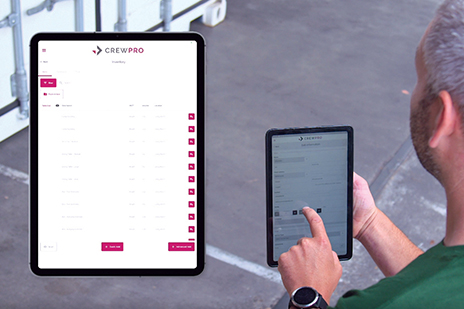Robert Voerman, CEO of Voerman Group, looks at the ways in which COVID-19, takeovers and decreased volume has affected the moving and relocation industry – and the lessons for the future
At Voerman, we knew 2020 would be different from 2016 – even though we didn’t quite imagine to what extent. We anticipated that we would still have a place in our market, and we forecasted that digital tools would play a more dominant role. So, over the years, we have invested heavily in IT solutions.
We forecasted that well-trained staff would be crucial; that we would be completely paper-free, using cloud storage and location free; that environmental solutions would become an increasing requirement from clients; that just taking over a company would not necessarily be a success; that we would have fewer competitors; and that we would have to diversify our company and our services in order to stay relevant and not be vulnerable to global political issues or pandemics.
How we foresee the future and our role from here
2020 has come with a bang, and we will never go back to ‘business as usual’ – which is maybe a good thing. The industry was already drifting towards a more digital approach and I am sure the trend will now accelerate. This means that there will be a lot of casualties among those companies that prefer to provide a traditional service, but those that embrace technology will give themselves a much better chance of survival.
There will be a lot of casualties, but those that embrace technology will give themselves a much better chance of survival
We are already seeing the impact of one contract managing all the military moves of the US. What is more interesting is that the parties that handle this contract are seeking new IT solutions to work digitally together. This will change our work process and make it more robust and sustainable in the long run.
The environment and our clients
In the past, we have all paid lip service to protecting the environment. Now, I think it will become much more intense, especially as people have had a taste of the improvements, particularly in air quality,
that can be achieved relatively quickly when there is the will.
In recent months, we have partnered with an environment specialist to develop a programme to show our clients that we offer CO2 neutral services throughout our supply chain. From October onwards, we will be rolling out this new service on behalf of three of our biggest clients.
This will undoubtedly play a more dominant role in future tenders. Procurement officers will now have to measure what kind of partner will be chosen based on additional values, and not only the traditionally lowest bid price.
Sustainable, transparent and efficient services performed by digital solutions guided by GDPR regulations will deliver a satisfied and motivated client – and executed by a service provider who can stay financially healthy. That will become the norm.
Staff
We have a duty to our employees, and we must make sure that we handle that seriously. For example, we have been focusing on extensive training during the quieter period and have been speeding up structural projects. This is also a great time to make sure you have the right people in the right place. Some of our staff have really stepped up in the crisis and it has provided an opportunity for them to show off their skills and work ethic.
Finance
We must all monitor our credit control carefully if we are to remain financially secure. Companies will have no choice but to demand faster payment from their corporate clients. It is unfair and unsustainable for small businesses to be financing big corporations.
In the past, we were worried about losing the business, but that is just not an option now. Some RMCs are going to be in a difficult position as well. They will need to look at their value proposition, as some of them are struggling anyway.
If collectively we do not understand that we need a healthy and realistic margin, more companies will fade away. A service rendered needs to be paid for – we cannot continue to price our services with the expectation that one price fits all. Our organisation has started dialogue with our clients on this – and together we will get there.
Standardisation and technology
The moving industry is already moving towards greater standardisation and we are seeing interesting initiatives between new digital service providers and traditional specialists in this area. Large corporates have come to realise that if they combine their demand with our service delivery chain, we all can benefit more. It is there already: in our market, we have already two digital operating companies that deliver the complete suite of services towards the end-client. If you didn’t know differently, you would think it was the norm.
That said, I believe we will need to move towards a more tailored service where each customer can get the level of service they want and expect and are prepared to pay for. Companies will have to decide where in the market they want to position themselves and what service levels they wish to offer.

We have all seen a rise in the use of video conferencing, which has, I believe, proved its worth. That may put the relevance of the traditional meeting opportunities in a different perspective. Now that we have all the IT tools and systems in place, the next big challenge is to ensure that our staff and clients use them. Automated service level agreements and contracts, e-learning tools, instant pricing, instant data reports and 360-service reports will be the new norm.
Opportunity
In our company, we experienced the sudden death of one of our key leaders, my dear colleague Edwin van de Vliet. It is a tragedy that we are still dealing with. But it also strengthens us to proceed on the road we were on together and, in his spirit, introduce new efficient tools. By the time this article is published, we expect to have implemented the new standard for most moves: the ‘Survey Crew Pro’, which is a spin-off of Edwin’s planning tool.
Companies that invest in technology or adopt IT tools structurally in their business processes, and make sure that they are sufficiently agile to manoeuvre, will do best in the new reality beyond 2020. And, while operating in a different market, these companies will be successful and relevant for years to come.


